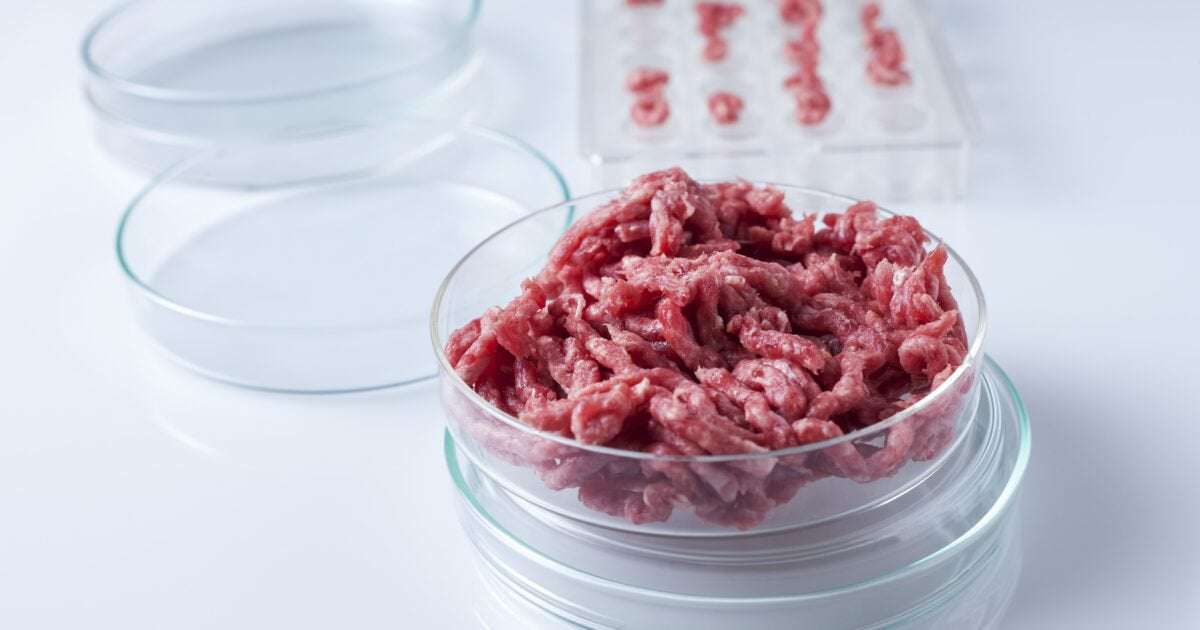The San Francisco–based company Just Eat grows cultivated chicken nuggets in vats from real chicken muscle and fat cells; you can buy them at restaurants in Singapore. The Israeli startup Aleph Farms recently unveiled its lab-grown ribeye steak. These nuggets and steaks are just the beginning, according to a new life cycle analysis by researchers at the Dutch consultancy CE Delft.
The report seeks to project how the cultivated meat industry will evolve over the coming decade. It specifically focuses on comparing the costs and environmental footprints of conventional and cultivated beef production.
By 2030, the Dutch researchers project, the costs to produce a kilogram of cultivated hamburger will fall to $5.66, which compares favorably with the current wholesale price of 90 percent lean ground beef at $6.20 per kilogram. They also expect cultivated meats to use much less water, land, and nutrients than conventional livestock production, and to emit considerably less greenhouse gas too. Assuming a 30 percent renewable energy use, the overall environmental impact of cultivated beef in 2030 will be about 90 percent lower than for conventional beef, they conclude. For example, cultivated beef is projected to produce 93 percent lower greenhouse gas emissions and to use 95 percent less land for nutrient production.
Meanwhile, animal-free dairy production is moving forward. For example, Perfect Day Foods uses fungi to ferment plant nutrients into proteins identical to the ones found in conventional milk. These proteins can be blended with other ingredients to produce liquid milk, ice cream, yogurt, and cheeses. Perfect Day says its milk proteins are already 40 percent cheaper than those from conventional cow milk. It also releases 80 percent less greenhouse gas emission, and it uses 98 percent less water and almost no land.
Right now, 50 percent of the world's 104 million square kilometers of habitable land is used for agricultural production. Of that land, 77 percent (44 million square kilometers) is used for livestock and dairy production. If cultivated beef and fermented dairy replaced just half the meat and milk the world's people eat and drink, an area nearly the size of North America could be allowed to revert to nature.

EightImmortls on April 6th, 2021 at 10:23 UTC »
I'm very interested in the taste and texture of it. It reminds me of some sci-fi novels where advanced beings no longer cultivate animals for food and instead farmers have a lot more in common with chemists and biologists in growing meat for consumption.
pretty_fly_4a_senpai on April 6th, 2021 at 08:08 UTC »
Children of the future will gasp in disbelief when they learn how meat was a valuable, hard-earned commodity as we did when we learned that wars were fought over table salt.
Im-a-bench-AMA on April 6th, 2021 at 08:02 UTC »
I wonder how vegetarians and vegans will feel about this when it goes mainstream? Like moral vegetarians/vegans, not those that do it for health reasons alone.